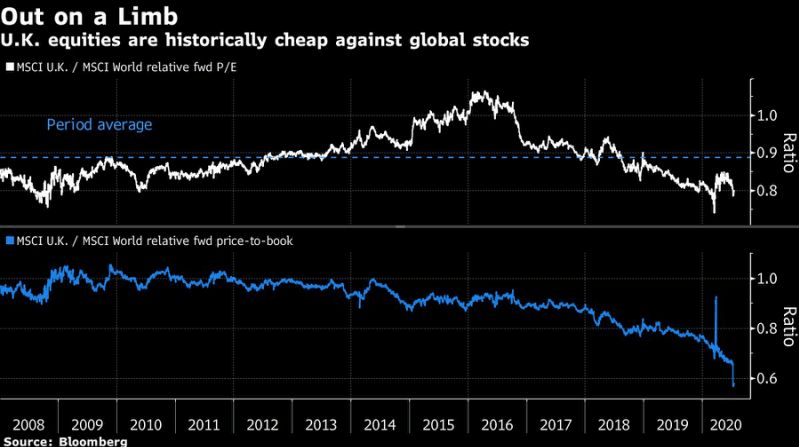Europe’s $3.5 Trillion Unity Rally Leaves Britain Far Behind
July 22, 2020 @ 14:53 +03:00
The differences between European and U.K. markets are looking starker than ever. As European Union leaders forge a historic rescue deal to save the bloc’s weakest economies, Brexit talks continue to fail in making any progress. By almost every market metric, investors are rewarding European unity and punishing the U.K.’s intractable problems.

The euro is near the highest since early 2019, Germany’s DAX Index is almost positive for the year and the Stoxx Europe 600 Index has added $3.5 trillion in market value since the mid-March lows. In Bank of America Corp.’s latest fund manager survey, investors raised their allocation to euro-zone equities by 9 percentage points, the largest increase in weighting for any region.
By contrast, the U.K. remains deeply unpopular. The pound has weakened this year, and FTSE 100 Index stocks are down 17% in 2020. The pound is only one of two major currencies where short positions outnumber longs, according to Scotiabank. In the Bank of America survey, U.K. was ranked as the most disliked region.
Money managers say the U.K. is a dangerous place to invest because of the impending cliff edge of a no-deal Brexit at the end of the year, when the transition period ends and tariffs potentially kick in. Negotiators for the U.K. and Europe say the chances of a deal being reached by the end of August are fading fast. Brexit Negotiators in Tense Standoff, Dashing Hope of Swift Deal
Six-month risk reversals in the pound versus both the yen and the dollar, a gauge of market positioning that covers the year-end Brexit deadline, show investors are anticipating a weaker pound.
All of the negativity around U.K. equities could be overdone, according to strategists at JPMorgan Chase & Co. The bank has dropped its bearish view and said stocks are cheap by most metrics. The softer pound could support earnings at FTSE 100 Index companies, which get nearly 80% of their revenue from overseas.
Europe’s $3.5 Trillion Unity Rally Leaves Britain Far Behind, Bloomberg, Jul 22







